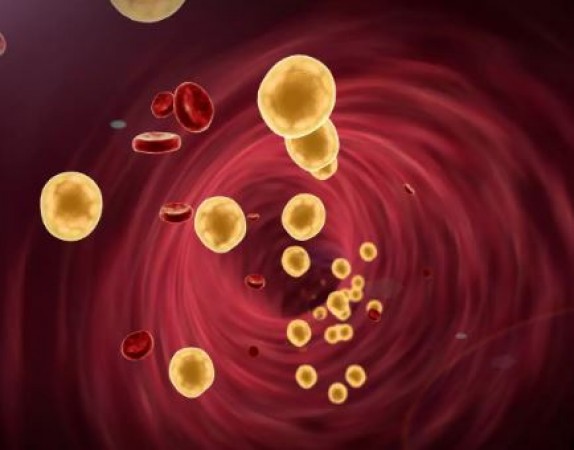
Cholesterol, a waxy substance found in the blood, is vital for the body's normal functioning. However, when its levels rise, especially the so-called "bad" cholesterol, it poses a significant threat to heart health. Let's delve into why high cholesterol is detrimental and explore effective ways to combat this silent enemy.
Cholesterol is a fatty substance produced by the liver and also ingested through certain foods. It travels through the bloodstream in lipoproteins.
Low-density lipoprotein (LDL) cholesterol, often termed "bad" cholesterol, can build up on the walls of arteries, forming plaque.
As plaque accumulates, it narrows the arteries, obstructing blood flow. This condition, known as atherosclerosis, heightens the risk of heart disease and stroke.
High cholesterol typically doesn't manifest noticeable symptoms until it causes severe complications, emphasizing the importance of regular screenings.
Blood tests, particularly lipid profiles, are instrumental in detecting cholesterol levels. These tests measure total cholesterol, LDL cholesterol, HDL cholesterol, and triglycerides.
Incorporating foods rich in soluble fiber, omega-3 fatty acids, and plant sterols can help lower cholesterol levels. Focus on fruits, vegetables, whole grains, and lean proteins.
Physical activity not only aids in weight management but also boosts HDL cholesterol levels while reducing LDL cholesterol and triglycerides.
Smoking damages blood vessels and contributes to the buildup of arterial plaque. Quitting smoking is pivotal for cardiovascular health.
For individuals with persistently high cholesterol, medications such as statins may be prescribed to lower cholesterol levels effectively.
Excess weight, especially around the waistline, is linked to higher cholesterol levels. Shedding pounds through a balanced diet and regular exercise can significantly improve cholesterol profiles.
Foods high in saturated and trans fats, such as fried foods and baked goods, can elevate LDL cholesterol levels. Opt for healthier fats found in nuts, seeds, and avocados.
While indulging in treats occasionally is acceptable, excessive consumption of high-cholesterol foods can sabotage heart health goals. Practice moderation for sustained results.
Routine medical check-ups are essential for monitoring cholesterol levels and assessing overall cardiovascular health. Consult with healthcare professionals to develop personalized prevention and treatment plans.
Understanding the implications of high cholesterol empowers individuals to make informed lifestyle choices conducive to heart health.
Enlist the support of friends and family in adopting heart-healthy habits. Shared goals and encouragement can make the journey towards optimal cholesterol levels more manageable.
Maintaining healthy habits consistently is paramount for long-term cholesterol management and overall well-being.
Acknowledge and celebrate milestones achieved on the path to healthier cholesterol levels. Small victories fuel motivation for continued efforts.
Addressing high cholesterol comprehensively involves not only dietary and lifestyle modifications but also stress management and adequate sleep.
Effective cholesterol management requires a lifelong commitment to prioritizing heart health through conscious choices and regular monitoring. High cholesterol poses a significant threat to heart health, but with awareness, lifestyle modifications, and appropriate medical intervention, individuals can effectively combat this silent enemy. By embracing heart-healthy habits and remaining vigilant, the journey towards optimal cholesterol levels becomes a triumph of perseverance and dedication.
Rising Milk Prices in India: Know the Causes Behind the Hikes
What kind of diet should a cancer patient follow after chemotherapy, know what the experts say